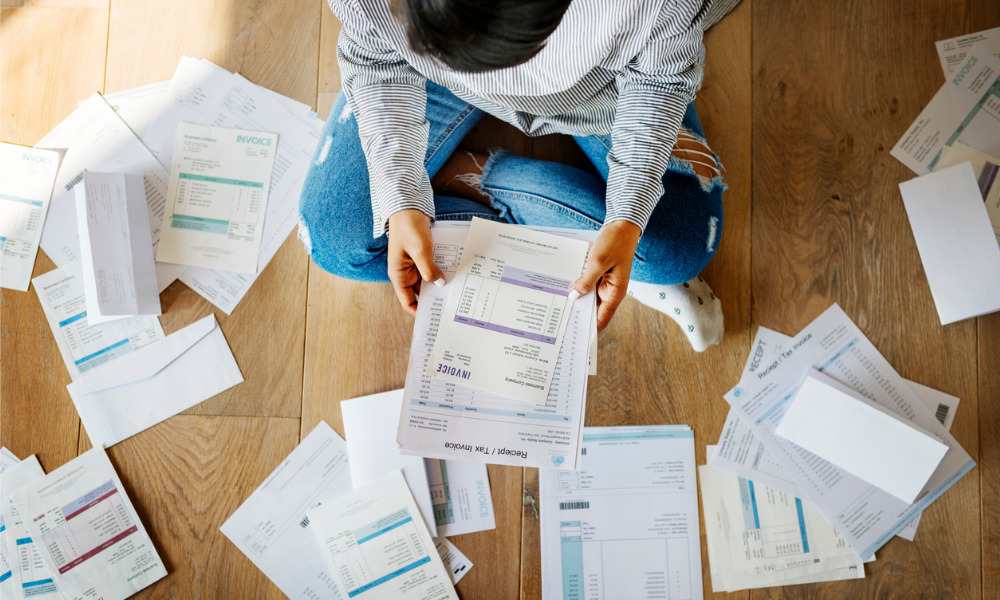Increased tax payments and student debt drive growth in average unsecured debt in 2021

According to new research from Licensed Insolvency Trustees Hoyes, Michalos & Associates, the typical insolvent debtor owed $50,484 in unsecured debt in 2021, an increase of 3.3% from 2020 and the highest level since 2016.
For insolvent debtors, the increase was driven by higher outstanding tax obligations and student loan debt.
"Tax debts have returned as a primary debt driver of consumer insolvencies," said Licensed Insolvency Trustee, Doug Hoyes. "This is despite a slowdown in collection activity by the Canada Revenue Agency these last two years."
Four out of 10 insolvent debtors owed taxes when they filed their tax returns in 2021.The average tax debtor owed $19,776 in taxes and interest last year, up from $15,866 the year before. Personal income tax, HST, source deductions, and property taxes are all examples of taxes owed.
A rising number of bankrupt debtors battling with student loan obligations is another worrying development. The average student loan debt among those who filed for student loans was $17,005, up 11.5% since the annual survey was launched in 2011.
"Emergency student loan relief in the form of deferrals and interest relief available during COVID-19 did not help everyone and was likely a factor in higher outstanding student loan balances upon filing insolvency," Hoyes added. "The pandemic has made long-term repayment conditions worse for many millennials, since they are more likely to work in precarious employment affected by COVID-19 lockdowns."
According to Licensed Insolvency Trustee Ted Michalos, "Heavily indebted Canadians just can't seem to catch a break. COVID-19 has caused a decrease in income for our average client, yet their housing and other costs of living continue to soar, with no sign that inflation will slow down any time soon. Insolvent debtors are left with just $200 a month, after paying for necessities, to put towards their debts. It's unmanageable."
In total, insolvent tax debtors owed $63,572 in total unsecured debt, which was 25.3% higher than the average insolvent debtor's total unsecured debt. Moreover, one in ten (11%) self-employed people are insolvent, with 7% citing a company failure as the reason for their insolvency (versus 4% for the average debtor). Those with tax debts had a 6.3% drop in income (compared to a 2.0% drop for all debtors), and 17% were unemployed (versus 15%).
In 2022, three changes will likely exacerbate insolvency due to taxation. With the filing deadline for 2021 taxes around the corner, more Canadians will face an outstanding tax bill when they file their taxes, especially those who received continued Covid-19 benefits.
The CRA will also reintroduce more aggressive tax debt collection efforts. The CRA's capacity to enforce collection was severely constrained for much of 2021.The capacity to issue requirements to pay, garnishment notifications, or freeze bank accounts was limited as collection agents worked from home, and CRA policy appeared to be light on collection operations throughout much of the pandemic. This cannot go on indefinitely, and the CRA has already begun to up collection efforts. In 2022, a resumption of aggressive activity can be expected.
In addition, interest relief on Covid-19 benefit tax payments is being phased out. Individuals who got Covid-19 benefits in 2020 and had a taxable income of less than $75,000 automatically got interest relief on their outstanding tax liabilities for the year 2021.This program will end on April 30, 2022, and some taxpayers will be unable to pay their outstanding taxes for the year 2021.
Since the beginning of the survey in 2011, student loan repayment has become a more common reason for filing for bankruptcy, reaching a new high in 2021, when 22.3% of insolvent debtors had student loan debt. Those with student loans had an average debt of $17,005, an increase of 11.5% and the highest amount since 2011. This rise could have been attributed to payment deferrals.
In 2021, insolvent debtors owed an average of $50,484 in unsecured debt and an additional $8,700 in non-mortgage secured debt (primarily a car loan or lease). They were 42.3 years old on average.
Almost one-half were single (46%), 31% were married, 21% were separated or divorced, and 2% are widowed.










